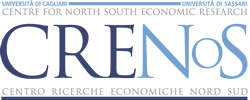A Time Varying Parameter Approach to Analyze the Macroeconomic Consequences of Crime
| Title | A Time Varying Parameter Approach to Analyze the Macroeconomic Consequences of Crime |
| Publication Type | Working Paper |
| Year of Publication | 2010 |
| Authors | Detotto, C, Otranto, E |
| Number | 2010_02 |
| Keywords | business cycle, crime, crowding-out effects, economic growth, impulse response analysis, kalman filter |
| Abstract | Criminal activity performs like a tax on the entire economy: it discourages domestic and foreign direct investments, it reduces firms’ competitiveness, and reallocates resources creating uncertainty and inefficiency. Although the impact of economic variables on crime has been widely investigated, there is not much concern about crime also affecting the overall economic performance. This work aims to bridge this gap by presenting an empirical analysis of the macroeconomic consequences of criminal activity. Italy is the case study for the time span 1979-2002. Dealing with a state space framework, a time varying parameter approach is employed to measure the impact of criminality on real Gross Domestic Product along time, and to measure the asymmetric impact in recession and expansion periods. The analysis is completed evaluating the effects of crime fluctuations in the long period by an impulse response analysis. |
| Citation Key | 2576 |
| Attachment | Size |
|---|---|
| 757.86 KB |
